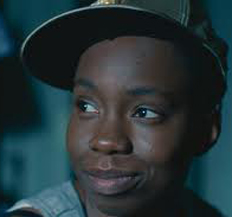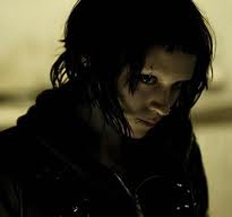
In this sweet, small indie, Melanie Lynskey plays Amy, a heart-sick, recently divorced woman who moves from New York back into her parents’ house in Westport, Connecticut, because she can’t fathom where else to go. She spends three months without leaving the (lavish, waterfront) property, wearing the same frayed shorts and faded red t-shirt, her lassitude emanating from her in funky waves. But when her father’s potential business deal forces her to shower, wash her hair, and dress for a dinner with his prospective client, she stumbles into an affair with a younger man that renews her interest in her own life and that teaches her a few things about who she really is.
In his New York Times review, A.O. Scott points out that in similar films about men who move back home to reorient their lives, the guys are usually given the benefit of the doubt (see, for instance, Jeff, Who Lives at Home). Women, no such luck. In Hello I Must be Going, Amy’s parents and her brother are downright cruel. They’re derisive about her pain; her mother bluntly and condescendingly suggests that she go on anti-depressants, and they criticize her appearance at every turn. Though her life has been completely upended by her unexpected and very recent divorce, the general consensus is that it’s her fault she can’t seem to get on with her life.

Directed (by Todd Louiso) and written (by Sarah Koskoff) with offbeat humor and confident knowingness, the film sees the blighted world of suburban Connecticut white privilege from Amy’s perspective. Her parents live in a large, light-filled house made noisy by constant construction work, as they complete their renovations room by room, years after they first moved in. At the same time, Amy’s father’s precarious financial future means that her parents, Ruth (Blythe Danner) and Stan (John Rubinstein), wander the house perseverating about losing what they have and—god forbid—moving into an apartment together. The plot turns on Stan’s ability to secure a new client; without the necessary income, they’ll have to sell the house, he won’t be able to retire, and he and Ruth won’t be able to take a much anticipated trip, aptly called Gallivanting the Globe.
Because they’re fairly stereotypical Jewish parents (even though their ethnicity is never expressed, their last name is Minsky), Ruth and Stan manage to make Amy feel guilty, implying that her personal trauma will somehow prohibit this crucial business venture. When they insist she come to dinner with the client and his family, Amy wears a borrowed a dress and sits sullenly, diffident and vague when asked questions about her life. The client, Larry (Damian Young), and his wife, Gwen (the always hilarious Julie White), resemble Amy’s parents; they’re wealthy, preoccupied, and superficial, as they skid the surface of their lives with little interest in anyone else’s.
But they bring to dinner Gwen’s young son, Jeremy (Christopher Abbott, recently of Girls), who immediately sees in Amy a kindred spirit. As she loses her enthusiasm for pretense and excuses herself from the table, he follows her out of the room and after a brief exchange, is bold enough to kiss her. To her surprise, Amy kisses him back.

Although she’s in her thirties and he’s still a teenager, Amy and Jeremy begin to see one another, alternating sexual escapades with conversations about their lives. Abbott plays Jeremy as a sensitive boy coming into adulthood and chafing at the oppressive supervision of a hovering mother who believes his life mirrors her own. Jeremy captures Amy’s affections and she reawakens under his sexual and emotional ministrations. They’re warm and funny together, kindred spirits who share an artistic bent—he’s an actor and she’s really a photographer—but feel stifled by the presumptions of their families.
Much of the film’s humor comes from situations in which Amy and Jeremy contrive to keep their relationship secret. Amy doesn’t want to jeopardize her father’s business deal. Because his first starring role was playing Robert Mapplethorpe, Jeremy’s mother thinks her son is gay, an assumption she makes with the pride of a knee-jerk liberal. Amy cuts the power to her parent’s security gate so that its alarm won’t sound when she slips out at night, and Jeremy makes up elaborate stories to cover his time with her.

In a happy role reversal, she throws stones up at his bedroom window when she wants to see him, playing the Romeo to his Juliet. They drive around in her mother’s car, parking by the beach; they have sex in his childhood bedroom, embarrassingly decorated with a beanbag chair shaped like a baseball and a mass of toy soldiers that belonged to a much younger version of Jeremy’s still young self; and they swim naked in his parents’ pool, provoking one of the movie’s funniest scenes when Gwen and Larry return home earlier than expected (because an understudy went on for Patti LuPone in the play they went to see on Broadway).

The movie traces Amy’s return to life through Jeremy’s affections. With no hope for a future together, even though he fantasizes about escaping with her, Amy is free to live in the moment, which brings her clarity about her past. She stopped working on her graduate degree in photography when she married her husband, David (Dan Futterman), sacrificing her own interests by presuming that a partnership with a successful entertainment lawyer mattered more than her own artistic pursuits. Her mother chides her for her failure to finish things, even though Amy believes she’s chosen to give up her career to follow the conventionally prescribed path.
When she meets David for lunch in the city, after some time with Jeremy, the older man’s deficits are clear. He can’t keep his eyes from his smart phone long enough for her to finish a sentence. And when she pushes him to talk about what went wrong in their marriage, he feeds her a standard line about not wanting to have already arrived at the end of his life so close to its beginning. Staying with her, he intimates, would have been a kind of settling. And Amy suddenly realizes that she would have settled, too.

Nothing in Hello I Must Be Going is surprising (so these really aren’t spoilers). Stan gets his client and his cash. But he decides not to retire, forcing Amy to reconcile her difficult relationship with her hyper-critical mother and gallivant around the globe in Stan’s place. She decides to finish her photography degree by shooting her mother beside rivers around the world (Amy loves to take pictures of water). She says goodbye to Jeremy, telling him he’ll enjoy Oberlin, where he’s about to go off to college. And she happily, wistfully takes her life in her own hands as she rides off in a taxi.
The film’s story, rehearsed plainly, is the simple backbone on which Amy’s trajectory is hung. We still don’t hear enough about women like her, relatively ordinary heterosexual women (despite her privilege and her parents’ wealth) who think they’re doing the right thing when they start relationships that will please their families without really considering if they please themselves. Even her old high school friends seem more clear-eyed about what love means than Amy. And they’re all ensconced in traditional suburban marriages, looking forward to women’s nights out once a week when they can get roaring drunk. Amy’s been buffeted about by other people’s wishes; once she understands what happened to her, she can sort through her own.

Louiso skirts the potential ethical queasiness of an older woman’s sexual relationship with a younger man by casting actors who don’t actually look that different in age. Melanie Lynskey is a young-looking 30 something Amy (she’s actually 36), and Christopher Abbott, as Jeremy, looks well into his 20s, rather than the 18-going-on-19 he’s supposed to play (he’s actually 26). But a generous suspension of disbelief allows you to enjoy the way the two misfits find and proceed to empower one another. That Jeremy is supposed to be younger means that Amy isn’t rebounding after her marriage so much as she’s starting over, correcting her course by seeing through the eyes of someone just beginning his own adult life.
Played by the radiant Lynskey, Amy is a lost soul with just enough sense of irony to keep her from being maudlin. Lynskey’s reactions indicate Amy recognizes that the people who surround her are ludicrous, including her social-climbing, prattling mother (in one of Danner’s less intelligent, less flattering performances), her more sympathetic but still clueless and somehow impotent father, and her selfish, narcissistic brother.
Lynskey’s Amy knows that her life is a muddle and that where she’s landed is not where she wants to be. She’s forced to come to terms with what she wants, against all the models lined up for her to emulate. Moved by Jeremy’s just passed adolescent soul-searching, Amy can restart her own life. And Lynskey’s empathetic, emotionally intelligent, sweetly funny performance of a not-so-young woman rebooting her system resonates with insight.
The Feminist Spectator

 Dee Rees’s debut feature film is a terrific study of a teenaged girl who identifies as a lesbian, even though she lives under the heterosexual enforcement of an unhappy mother and a warm but philandering father.
Dee Rees’s debut feature film is a terrific study of a teenaged girl who identifies as a lesbian, even though she lives under the heterosexual enforcement of an unhappy mother and a warm but philandering father.
 Albert Nobbs has been Glenn Close’s passion project since she performed the title role in
Albert Nobbs has been Glenn Close’s passion project since she performed the title role in 
 Writer-director Alexander Payne’s films—if About Schmidt, Sideways, and now The Descendantsare any indication—are sensitive, expressive investigations into white, middle-class, heterosexual masculinity. George Clooney, recently nominated for an Academy Award for his role, for which he already won a Golden Globe, plays Matt King, a real estate lawyer in Hawai’i whose life falls apart when his wife’s injury in a boating accident leaves her in an irreversible coma. In the voiceover that frames much of the film, Matt admits that he’s always been the back-up parent to his two daughters, and can’t quite fathom what to do with his family when he’s left in charge.
Writer-director Alexander Payne’s films—if About Schmidt, Sideways, and now The Descendantsare any indication—are sensitive, expressive investigations into white, middle-class, heterosexual masculinity. George Clooney, recently nominated for an Academy Award for his role, for which he already won a Golden Globe, plays Matt King, a real estate lawyer in Hawai’i whose life falls apart when his wife’s injury in a boating accident leaves her in an irreversible coma. In the voiceover that frames much of the film, Matt admits that he’s always been the back-up parent to his two daughters, and can’t quite fathom what to do with his family when he’s left in charge.
 David Fincher’s tense, moody film adaptation of the popular Stieg Larsson book actually improves on the reading experience. Where the book offered a great story with plodding prose, Fincher’s film cuts the narrative to the bone while staying faithful to Larsson’s plot and characters. The film’s visual style makes it a pleasure to watch, evoking both the cosmopolitanism and gritty urbanism of Stockholm and the frozen, snow-blown north Sweden countryside where much of the central mystery unravels.
David Fincher’s tense, moody film adaptation of the popular Stieg Larsson book actually improves on the reading experience. Where the book offered a great story with plodding prose, Fincher’s film cuts the narrative to the bone while staying faithful to Larsson’s plot and characters. The film’s visual style makes it a pleasure to watch, evoking both the cosmopolitanism and gritty urbanism of Stockholm and the frozen, snow-blown north Sweden countryside where much of the central mystery unravels.